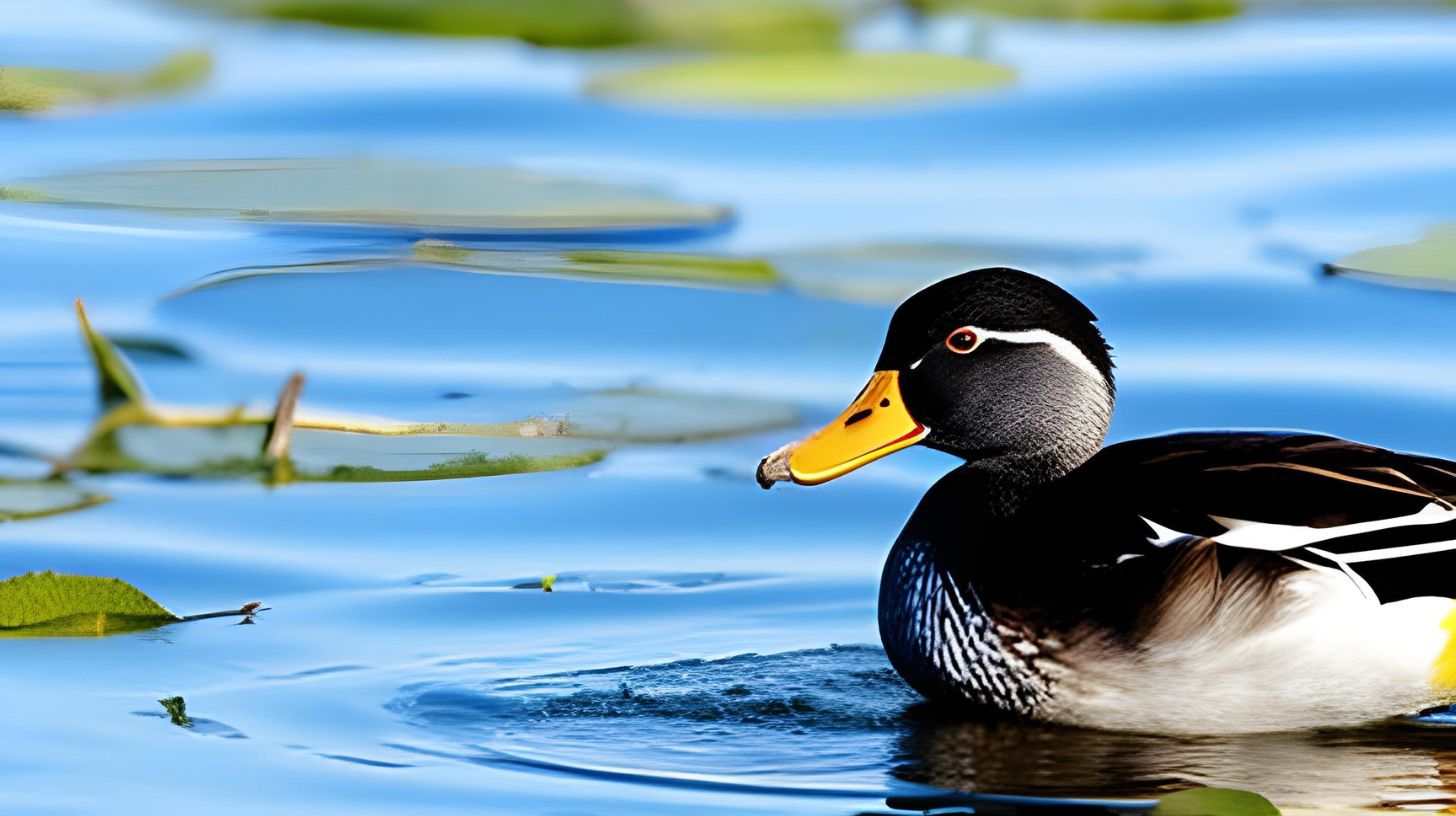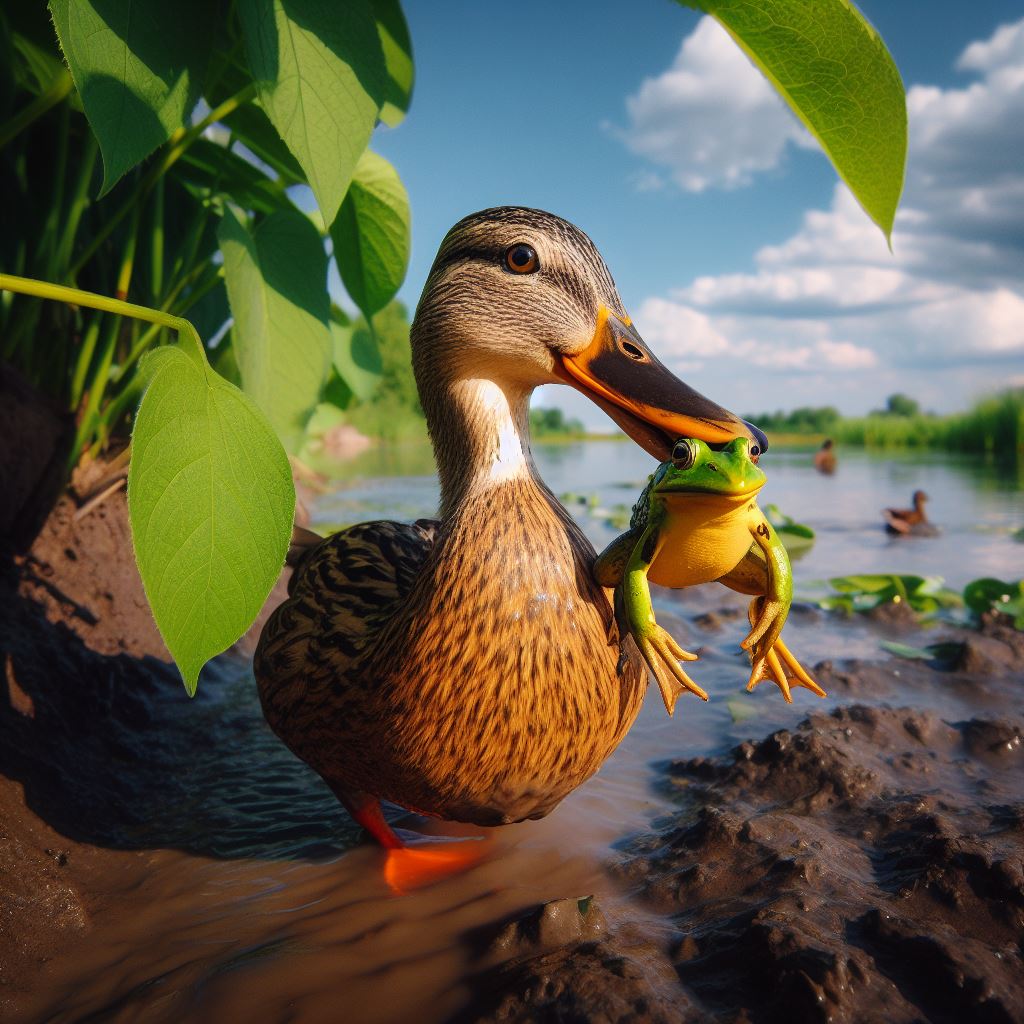Can Ducks Eat Blueberries? Benefits and Safety Tips
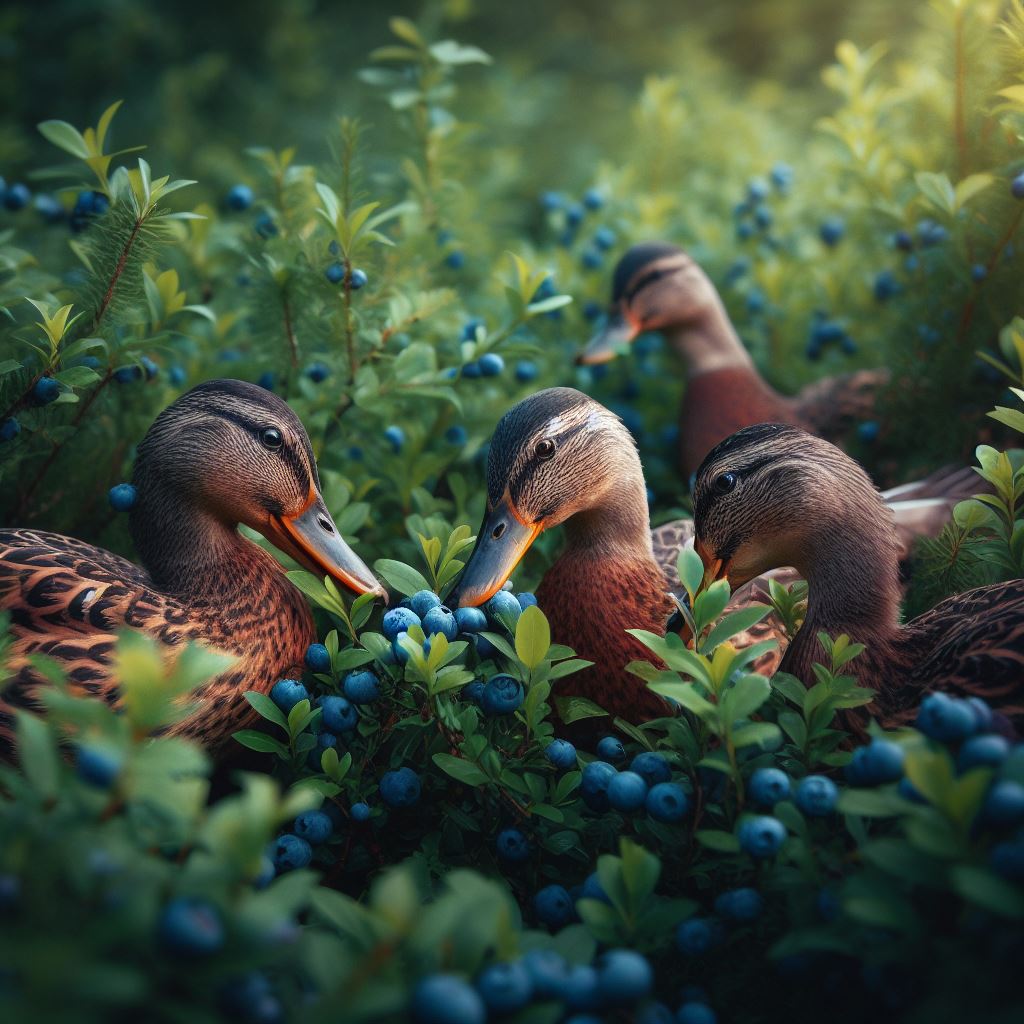
Table of content:
Blueberries are a nutritious fruit that both humans and animals enjoy. But can ducks eat blueberries too? Let’s explore the benefits and risks of feeding blueberries to ducks.
Key Takeaways:
- Blueberries contain antioxidants and can provide nutritional value to ducks.
- Blueberries should only be fed to ducks in moderation as too much can cause digestive issues.
- Only feed ducks washed, ripe blueberries to avoid choking hazards.
- Avoid feeding ducklings under 6 weeks old high-sugar fruits like blueberries.
- Blueberries can be an occasional treat for adult ducks but shouldn’t make up a large part of their diet.
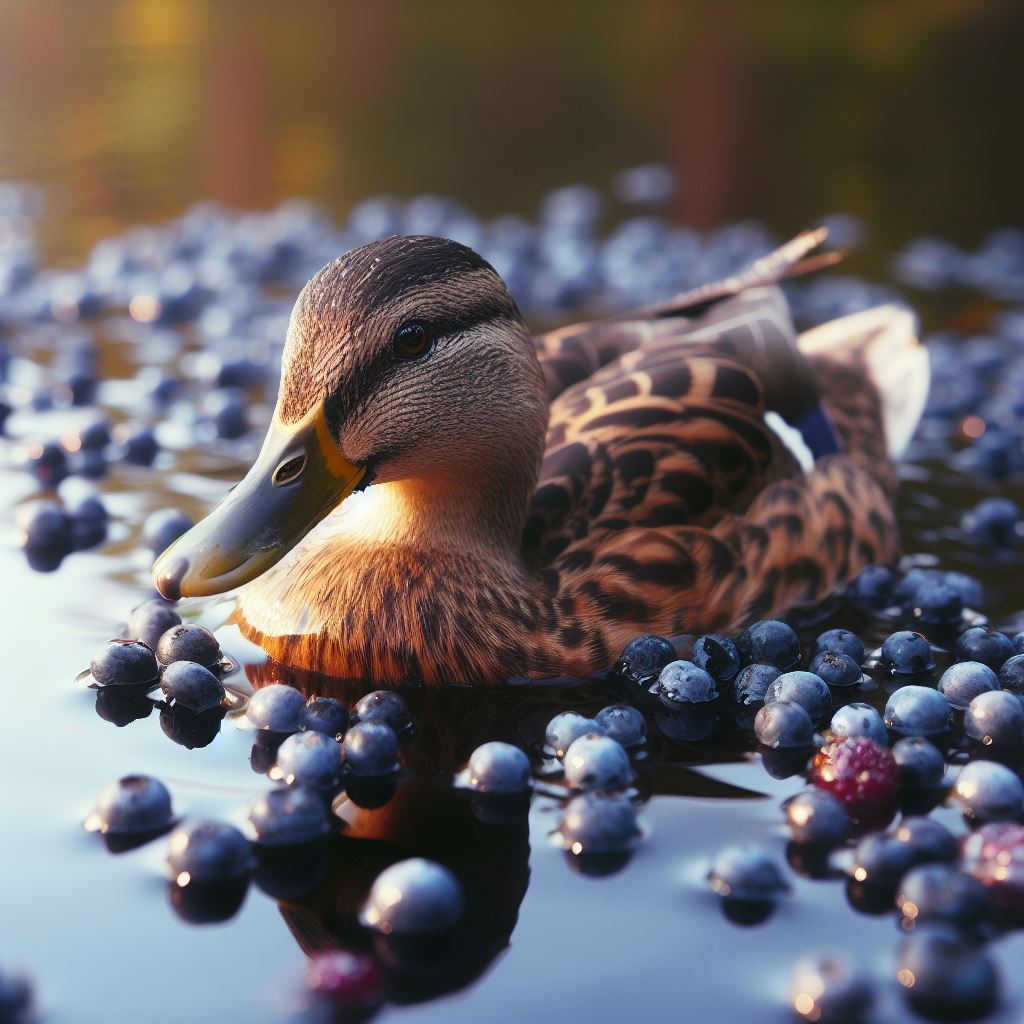 An Overview of Duck Nutrition
An Overview of Duck Nutrition
Understanding duck nutrition and duck diets is key when exploring what human foods like fruit are safe for them to eat.
In the wild, wild ducks eat a varied diet including:
- Aquatic plants
- Aquatic insects
- Small fish
- Tadpoles
- Worms
- Grubs
This nutritious and diverse diet provides ducks with:
- Protein
- Healthy fats
- Vitamins
- Minerals
Domestic ducks benefit from a similar varied diet rich in protein, fiber, vitamins, and minerals.
Are Blueberries Safe for Ducks to Eat?
Blueberries contain beneficial antioxidants, vitamins, and fiber. This has led many duck owners to wonder:
Can ducks eat blueberries?
The answer is yes, ducks can eat blueberries in moderation as an occasional treat.
Blueberries provide some nutritional benefits to ducks, making them one of the safer fruits you can choose to feed ducks.
However, there are also some risks to be aware of when feeding blueberries to ducks.
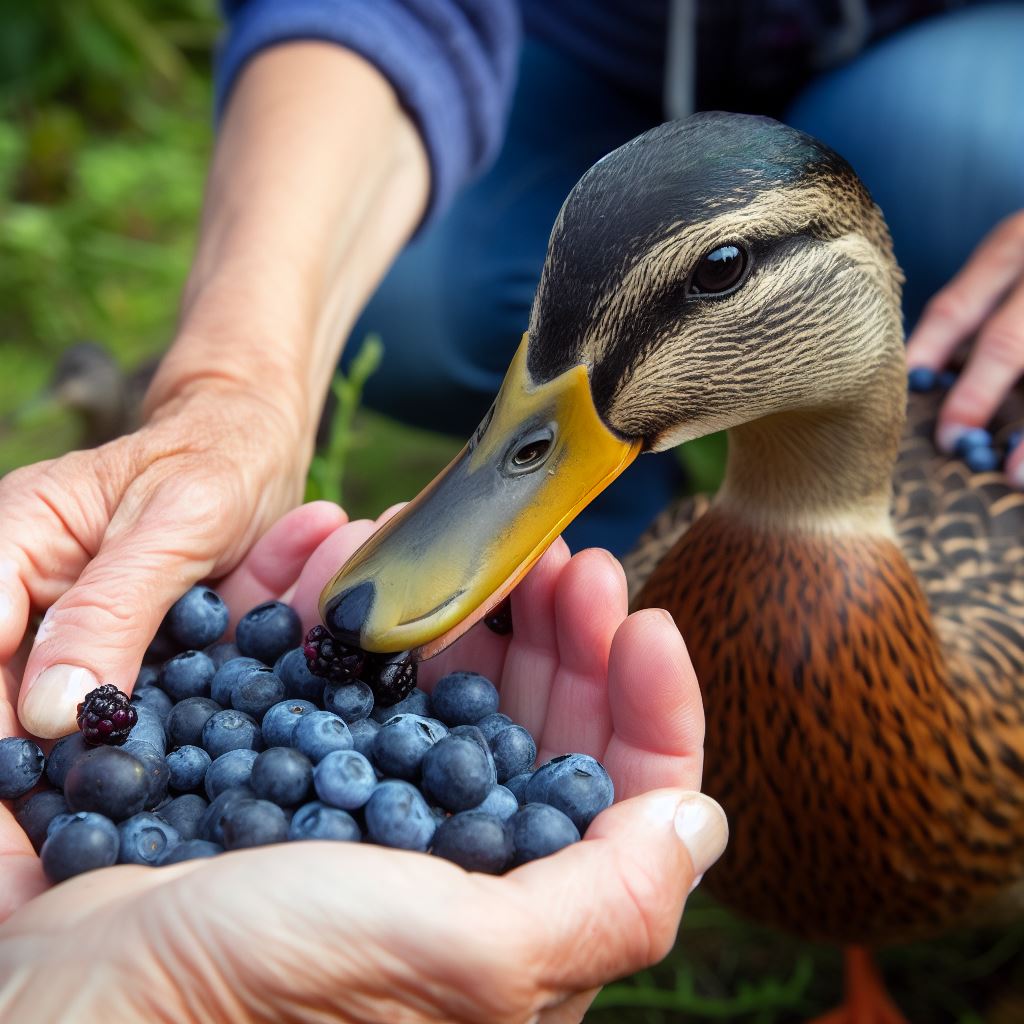 Benefits of Blueberries for Ducks
Benefits of Blueberries for Ducks
Here are some of the main benefits blueberries can provide ducks:
- Antioxidants – Blueberries contain antioxidants called anthocyanins which can support duck health and immunity.
- Fiber – Blueberries provide dietary fiber that can aid duck digestion.
- Vitamin C – Blueberries are high in immune-boosting vitamin C.
- Vitamin K – Important for blood clotting.
- Manganese – Blueberries provide manganese which supports bone health.
So in moderation, blueberries can be a nutritious fruit for ducks providing valuable vitamins, minerals, and antioxidants.
Risks of Feeding Ducks Too Many Blueberries
However, there are some risks to feeding ducks blueberries to be aware of:
- Digestive upset – Too many blueberries may cause loose droppings or diarrhea in ducks.
- High sugar – The natural sugar content in blueberries can be problematic if fed excessively.
- Choking hazards – Whole blueberries can pose a choking risk for ducks, especially ducklings.
So while blueberries are one of the safer fruits to feed ducks, they should only be fed occasionally and in moderation. Too much can lead to health issues.
How Many Blueberries Can a Duck Eat?
As a general rule, adult ducks should eat no more than 1⁄4 cup of blueberries (about 30 grams) two or three times per week at most.
This small serving a few times a week provides nutritional benefits without overdoing it on sugar or fiber.
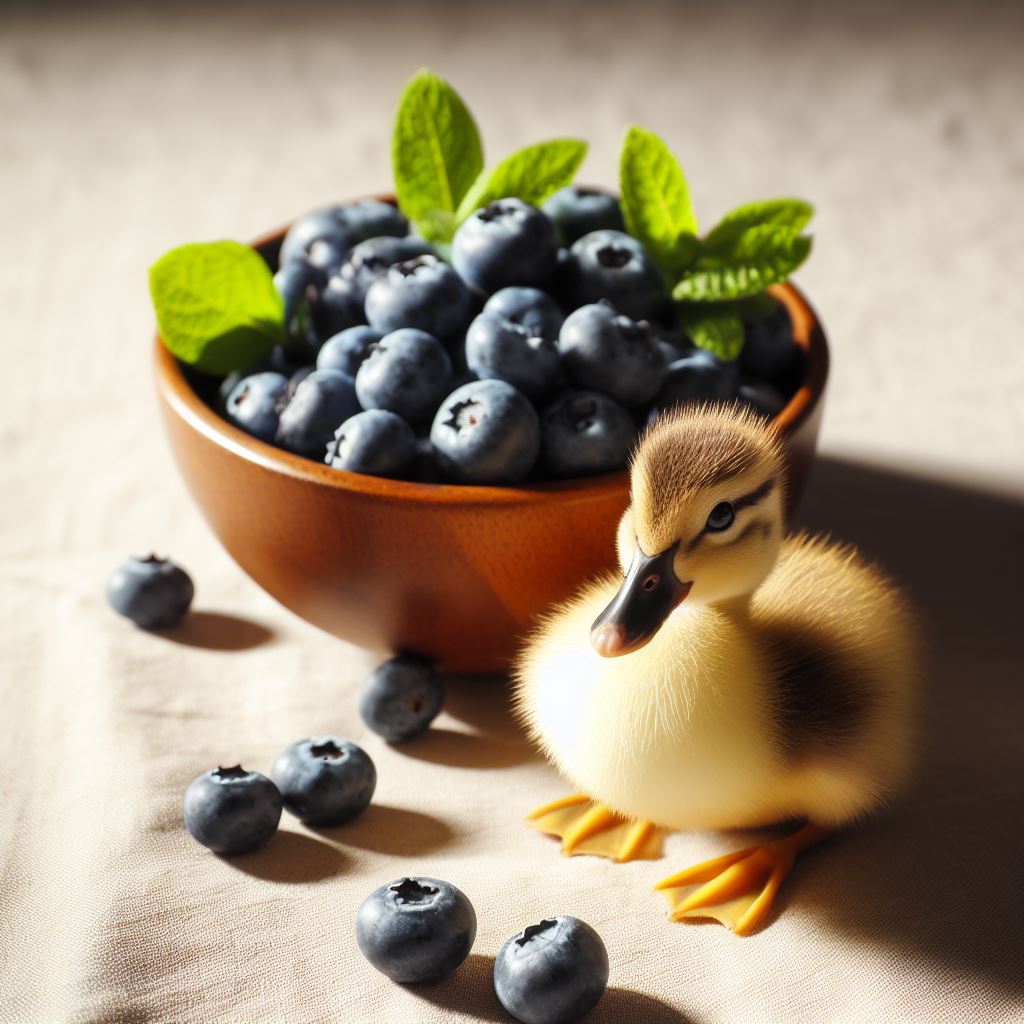 Can Ducklings Eat Blueberries?
Can Ducklings Eat Blueberries?
It’s best to avoid feeding ducklings high-sugar fruits like blueberries until they are at least 6 weeks old. Their digestive systems are too immature to handle excess sugars before this age.
Once ducklings are 6 weeks or older, they can eat a few washed ripe blueberries two or three times a week as a snack. But be sure to watch for signs of choking and supervise them closely. Chopped blueberries are safer for ducklings.
Feeding Blueberries to Ducks Safely
If you want to feed your ducks blueberries, here are some tips to do so safely:
- Wash the berries and remove any damaged or unripe ones.
- Chop the berries for ducklings. Whole berries can pose a choking hazard for young ducks.
- Feed just a small amount – no more than 15-20 berries per adult duck per feeding.
- Feed ripe blueberries only two or three times per week at most.
- Supervise ducklings closely when feeding blueberries.
- Discontinue feeding blueberries if you notice any signs of digestive upset.
By following these tips, you can safely feed your ducks blueberries as an occasional treat.
What Other Fruits Can Ducks Eat?
Blueberries are one of the safer fruits to feed ducks, but what other fruits can ducks eat?
Some other fruits ducks can eat in moderation include:
- Chopped apples
- Melons such as cantaloupe or honeydew
- Bananas
- Chopped mango
- Berries such as strawberries, blackberries, and raspberries
- Chopped grapes cut in half to prevent choking
Fruits for ducks should always be fed in small quantities 2-3 times per week at most. As always, supervise ducklings closely when feeding any fruits to avoid choking risks.
Fruits to Avoid Feeding Ducks
Some fruits are not safe for ducks and should be avoided. These include:
- Citrus fruits like oranges, lemons, limes, and grapefruit. The acidity is not good for ducks.
- Dried fruits can cause choking.
- Cherries or apples with pits, seeds, or stems could cause intestinal blockages if consumed.
It’s also best to limit high-sugar tropical fruits like pineapple and kiwi. While not toxic, they can cause diarrhea if overfed to ducks.
What Do Ducks Eat? Creating a Balanced Duck Diet
While fruits like blueberries can make an occasional treat, what do ducks eat on a regular basis to stay healthy?
Adult ducks should be fed a nutritious diet that consists primarily of:
- Duck pellets – Provide balanced nutrition for adult duck maintenance.
- Insects – Crickets, mealworms, river shrimp provide protein.
- Greens – Dark leafy greens for fiber and nutrients.
- Vegetables – Carrots, peas, squash, sweet potato.
- Grit – Provides digestion aid and calcium.
In addition to pellets and insects, variety is key. Rotate a mix of approved veggies, leafy greens, and the occasional fruit treat like blueberries.
Clean fresh water should always be available.
Creating a Healthy Diet for Ducklings
Proper duckling nutrition is key to helping them grow and thrive.
A healthy diet for ducklings under 6 weeks old should consist of:
- Duckling starter feed – Provides complete nutrition for fast growth.
- Insects – Mealworms, crickets for protein.
- Greens – Chopped kale, chard, lettuce.
Grit should also be provided to ducklings once they reach 4-6 weeks old.
Avoid feeding ducklings under 6 weeks old any high-sugar fruits like blueberries which can cause digestive upset.
Once ducklings are 6 weeks old, small amounts of chopped fruit can be fed 2-3 times per week.
Duck Diet FAQs
Here are answers to some frequently asked questions about feeding ducks:
Can I feed ducks grapes or raisins?
Grapes should be chopped in half and seeded to prevent choking. Raisins are easy to overfeed and can cause diarrhea – it’s best to avoid them.
What about tomatoes or avocado?
While not toxic, both tomatoes and avocados provide minimal nutritional value so aren’t a good choice compared to leafy greens, berries, and other fruits.
Is it okay to feed ducks bread or crackers?
Avoid feeding ducks bread, crackers, chips, or other “people’s food.” These empty calories and carbs can lead to poor nutrition and health issues like angel wings.
What feed is best for ducks?
For ducks of all life stages, pelleted duck feed provides the most balanced nutrition. Look for a pellet made specifically for ducks.
How often should I feed my ducks fruits and veggies?
Adult ducks can eat small amounts of chopped fruits and veggies 2-3 times per week as treats. Any more than that can lead to excess sugar, diarrhea, and poor nutrition balance from filling up on less nutritious foods.
Conclusion
In conclusion, most ducks enjoy an occasional blueberry as a treat. When fed in moderation and properly prepared, blueberries can provide valuable nutrients and antioxidants.
Be sure to introduce high-sugar fruits slowly, feed no more than 1⁄4 cup at a time for adults, and avoid giving too much to reduce risks of digestive upset.
Focus duckling diets on proper starter feed and do not feed fruits before 6 weeks of age.
Overall, blueberries can be a fun, nutritious supplement to a duck’s diet when fed responsibly. Along with other chopped fruits and veggies, they make a nice addition to an adult duck’s diet a few times a week.
Welcome. I’m Adreena Shanum, the proud owner of this website, and I am incredibly passionate about animals, especially poultry. I founded adreenapets.com as a labor of love, stemming from my desire to share my knowledge and experiences with poultry enthusiasts worldwide.


